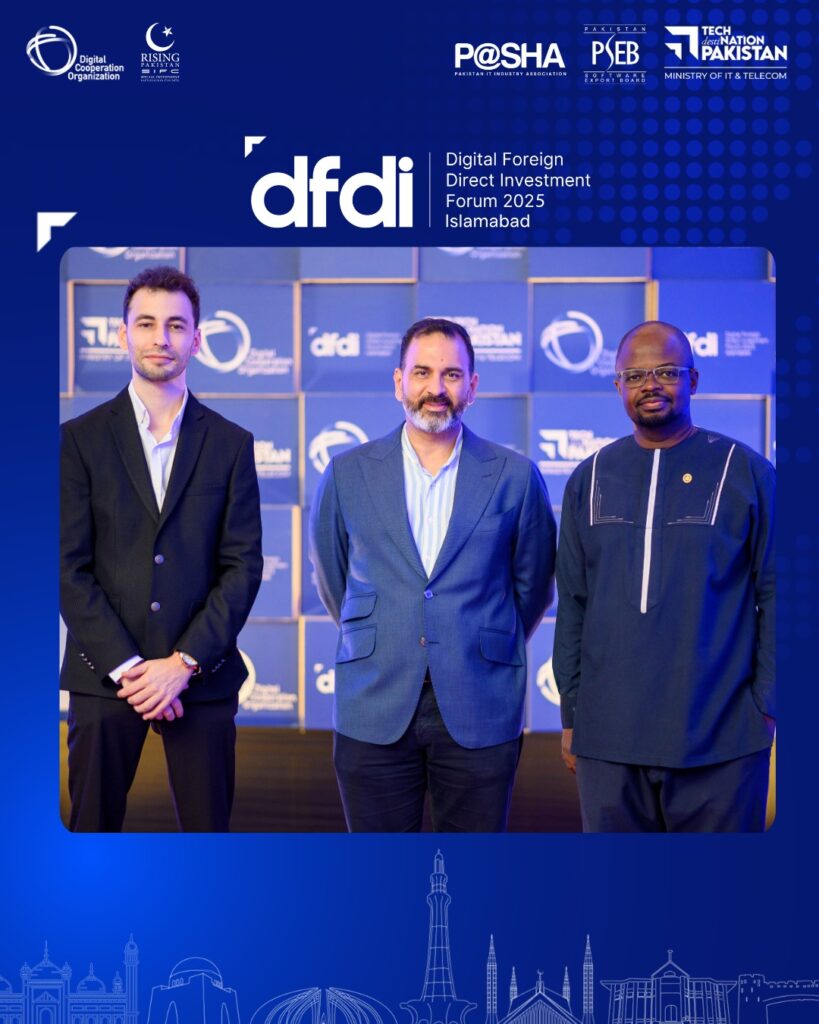Table of Contents
🌍 DFDI Africa Government Collaboration: Driving Inclusive Development Across the Continent
DFDI Africa government collaboration is emerging as a powerful driver of sustainable development. Across the continent, African governments are partnering with Development Finance Institutions (DFIs) and private investors to fund and execute high-impact projects in sectors such as infrastructure, healthcare, energy, and education. These partnerships are essential for bridging the financing gap and delivering inclusive, long-term economic growth.
Unlike traditional foreign direct investment (FDI), Development Finance Direct Investment (DFDI) prioritizes social returns alongside financial ones. Government collaboration is the key to unlocking DFDI’s full potential, as it ensures local alignment, regulatory support, and long-term policy continuity.
🤝 Why DFDI Africa Government Collaboration is Essential
Collaboration between governments and DFDI stakeholders in Africa is not just helpful—it is critical for success.
Key Reasons for Strong Government Collaboration:
- Creates a stable investment climate
- Streamlines regulatory and legal processes
- Aligns projects with national development goals
- Ensures local stakeholder engagement
- Provides co-financing and land/resource support
In many African countries, government involvement can determine whether a project is scalable, sustainable, and impactful.

🏗️ Sectors Benefiting Most from DFDI Africa Government Collaboration
DFDI Africa government collaboration is driving transformation across a wide range of critical sectors. These sectors not only contribute to economic growth but also uplift underserved communities, improve human capital, and accelerate sustainable development goals (SDGs). Government involvement plays a pivotal role in each of these sectors by removing entry barriers, ensuring community support, and aligning investments with national strategies.
⚡ 1. Energy and Renewable Power
Africa faces significant energy access challenges, with over 600 million people lacking reliable electricity. Through DFDI Africa government collaboration, countries are building energy infrastructure that is both sustainable and inclusive.
Key initiatives include:
- Solar farms and off-grid solutions for rural areas
- Hydroelectric and wind power development
- Public-private partnerships to expand national grids
- Government subsidies and land allocation for energy projects
Example: The Scaling Solar initiative, supported by the World Bank and several African governments, has enabled private investors to build solar plants at globally competitive rates.
🛣️ 2. Infrastructure and Transport
Transport infrastructure is the backbone of economic development, enabling trade, mobility, and access to services. Yet, many African regions suffer from underdeveloped roads, ports, and rail networks.
Through DFDI Africa government collaboration, governments partner with DFIs and private investors to deliver:
- Toll roads, expressways, and urban transit systems
- Rail networks linking industrial zones to ports
- Upgraded airports and seaports to enhance trade logistics
- Smart city infrastructure for growing urban populations
Example: The Addis Ababa–Djibouti Railway, a joint effort between Ethiopia, Djibouti, and development financiers, has drastically reduced transport time for goods in the Horn of Africa.
🏥 3. Healthcare Systems
Africa’s healthcare systems often face capacity issues, with rural populations suffering the most. Governments are using DFDI-backed partnerships to bridge these service gaps.
Collaborative projects include:
- Building district hospitals and mobile clinics
- Introducing digital health and telemedicine platforms
- Training medical professionals through private-academic partnerships
- Ensuring supply chains for essential medicines
Example: Rwanda’s telehealth program is a result of collaboration between the government, DFIs, and telecom companies, reaching thousands in remote villages.
🎓 4. Education and Skills Development
Education is key to unlocking Africa’s demographic dividend. DFDI Africa government collaboration in the education sector empowers youth through better infrastructure, access to technology, and tailored training programs.
Common initiatives:
- Construction of public schools, particularly in rural areas
- Development of e-learning platforms and educational apps
- Vocational and technical training centers
- Teacher training programs funded through blended finance
Example: Ghana’s e-learning and STEM school project, co-financed by international donors and the government, is providing digital tools to thousands of students.
🌾 5. Agriculture and Agribusiness
Agriculture employs more than 60% of Africa’s workforce, yet it remains underfunded and technologically backward. DFDI-government partnerships are working to modernize the sector.
Development projects include:
- Irrigation systems and farm-to-market roads
- Agro-processing facilities and cold chain logistics
- Agritech startups with access to development funds
- Access to microfinance and insurance for smallholder farmers
Example: The Nigerian government partnered with DFIs and agri-investors to launch Staple Crop Processing Zones (SCPZs), improving value chains and reducing post-harvest losses.
🧬 6. Technology and Innovation
The digital economy is growing rapidly in Africa, and DFDI Africa government collaboration is crucial to support startups, expand internet access, and digitize government services.
Key focus areas:
- Expansion of broadband and 4G/5G infrastructure
- Government-led innovation hubs and incubators
- Digital ID and e-governance platforms
- Data centers and cloud technology adoption
Example: Kenya’s “Silicon Savannah” tech ecosystem is supported by both public initiatives and private DFDI partners investing in fintech and e-commerce infrastructure.
💧 7. Water, Sanitation, and Hygiene (WASH)
Millions of Africans still lack access to clean water and proper sanitation. Governments are working with DFIs to finance impactful projects that ensure health and dignity.
These include:
- Urban water treatment facilities
- Rural water access through solar pumps
- Smart metering and billing systems
- Construction of sanitation infrastructure in schools and hospitals
Example: The Senegal Urban Water Supply and Sanitation Project, backed by the African Development Bank and government partnerships, has improved access for over 2 million people.
🏘️ 8. Affordable Housing and Urban Development
Rapid urbanization in Africa demands modern, affordable housing solutions. Governments are working with DFIs to enable large-scale, low-cost housing projects.
Initiatives include:
- Land provision by governments for public housing
- Mixed-use development zones with DFDI backing
- Urban master planning with sustainability focus
- Support for eco-friendly and modular housing technology
Example: South Africa’s Human Settlements Development Bank collaborates with DFIs and private developers to construct sustainable housing communities.
🚀 9. Industrialization and Manufacturing
To reduce reliance on imports and create jobs, many African governments are prioritizing industrialization. DFDI Africa government collaboration helps build Special Economic Zones (SEZs), logistics hubs, and industrial parks.
Key developments:
- Government-backed SEZs attracting DFDI
- Skill-building partnerships with vocational schools
- Green industrial clusters using renewable energy
- Industrial innovation zones for tech and R&D
Example: Ethiopia’s Hawassa Industrial Park was developed through a government-DFI-private sector model and now employs tens of thousands in garment manufacturing.tal role by identifying needs, facilitating permits, and co-managing implementation.
📘 Strategies That Strengthen DFDI Africa Government Collaboration
African nations are adopting innovative strategies to foster productive collaboration with DFDIs and investors.
1. National Investment Frameworks
Governments are developing clear frameworks that define priority sectors, investor protection clauses, and public-private partnership (PPP) models.
2. Establishing Dedicated DFDI Units
Some countries have created DFDI-focused agencies or units within ministries that serve as one-stop investment shops.
3. Capacity Building and Training
Governments are investing in training public officials to better manage contracts, negotiations, and compliance.
4. Transparent Procurement Systems
Online platforms and digital tools are being introduced to improve procurement transparency and reduce corruption risks.
✅ Real-World Examples of DFDI Africa Government Collaboration
🌞 Morocco’s Noor Solar Project
With support from the Moroccan government and DFIs like the World Bank, Noor became one of the largest solar installations in Africa.
🏥 Rwanda’s Healthcare PPP Model
Rwanda’s government partnered with private players and DFIs to build a national telemedicine network and improve rural health outcomes.
🚉 Kenya’s Standard Gauge Railway
A collaboration between the Kenyan government and DFIs led to modernized rail infrastructure that connects key trade hubs.
🛠️ Challenges in DFDI Africa Government Collaboration
Despite the promise, DFDI Africa government collaboration faces several roadblocks that need careful navigation.
Key Challenges:
- Bureaucratic delays and red tape
- Weak institutional capacity
- Political instability
- Corruption and lack of transparency
- Unclear land or property rights
These can discourage investors or delay project implementation. Strong governance, capacity development, and legal reforms are essential to overcoming them.
📈 How DFDI Africa Government Collaboration Boosts Local Economies
When done right, DFDI-government partnerships offer wide-reaching economic and social benefits, such as:
- Job creation and skill development
- Technology transfer and innovation
- Increased access to essential services
- Improved public sector efficiency
- Stronger trade and investment ecosystems
The multiplier effect of such collaborations helps lift communities out of poverty and strengthens national economic resilience.
📊 How Governments Can Improve DFDI Collaboration
To maximize outcomes, African governments must take proactive steps:
Key Improvements:
- Foster policy stability through multi-year frameworks
- Invest in public sector training and legal expertise
- Digitize investment processes and procurement
- Promote community inclusion in project planning
- Use performance-based contracts to align incentives
When governments lead with strategy, transparency, and purpose, DFDI partnerships become transformative engines of progress.
🧭 Future Outlook for DFDI Africa Government Collaboration
The next decade offers unprecedented opportunities for DFDI Africa government collaboration, especially in the face of global challenges like climate change, migration, and digital inclusion.
Emerging Areas of Focus:
- Green infrastructure and climate finance
- Women-led business development
- Smart agriculture and food security
- Renewable energy for off-grid communities
- Digital innovation for governance and services
With proper policy support and institutional innovation, Africa could become a global model for impact-driven investment.

📢 Ready to collaborate for Africa’s future?
✅ CTA Button: Start Your DFDI Partnership with Governments Today
❓ Frequently Asked Questions (FAQs)
Q1. What is DFDI and how is it different from FDI?
DFDI (Development Finance Direct Investment) focuses on achieving development goals alongside financial returns, often backed by DFIs. Traditional FDI mainly aims at profit generation.
Q2. Why is government collaboration important in DFDI projects?
Governments help streamline regulations, align projects with local needs, provide land and permits, and ensure long-term support—making collaboration vital for DFDI success.
Q3. How can governments attract more DFDI?
By ensuring political stability, creating clear investment policies, offering incentives, and maintaining transparency in operations and procurement.
Q4. What sectors benefit most from DFDI-government partnerships?
Infrastructure, renewable energy, education, healthcare, and agriculture are top sectors due to their developmental significance.
Q5. Are DFDI projects profitable for private investors?
Yes. While the returns may be moderate compared to FDI, they are often lower-risk due to government and DFI backing, and they offer long-term impact.
Follow us on Facebook for Quick Response & Quires – Digital Foreign Direct Investment (DFDI)
